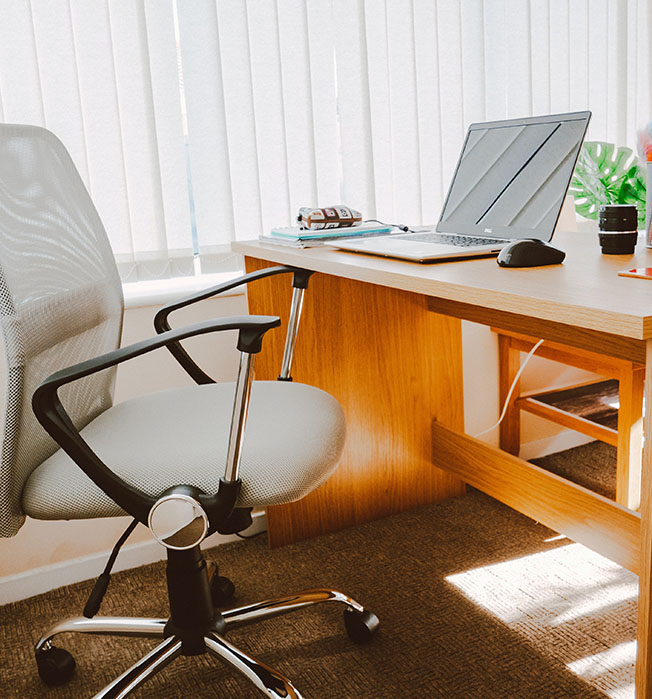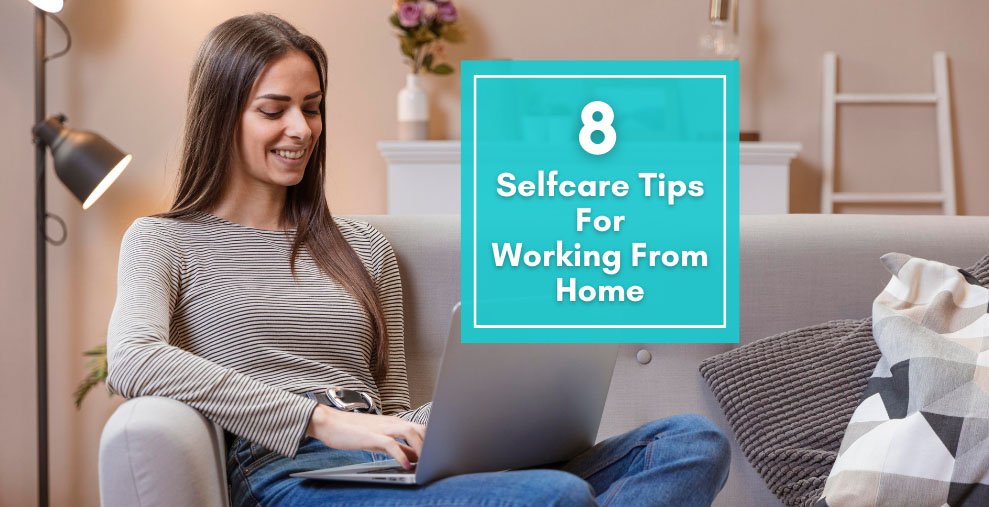Many people are working and educating from home for the first time as a result of the Covid-19 outbreak. Good health habits are important at any time, but they are more important today. So, if you work from home, how do you stay healthy?
Wellness principles, such as eating a good diet and taking regular exercise, are health suggestions for individuals working from home.
However, the psychological and social issues of remote working, such as loneliness and blurred barriers between work and home life, must be addressed.
Here are 8 suggestions to help you keep healthy and active while working remotely if you’re new to the concept of working from home.
1- Eat a Balanced Diet

One of the most difficult tasks for those who work from home is maintaining a healthy diet. After all, it’s easy to munch when the fridge (or snack cupboard) is only a few steps away. When you’re worried, it’s more difficult to ignore your cravings.
Keep healthful snacks on hand for when you need them. Fruits such as apples, bananas, tiny carrots, and clementines are excellent choices. Pepper slices with hummus or salsa make a tasty snack. Fruits and vegetables should be prioritised, especially as a mid-day snack. If it helps you make better decisions, you could wish to prepare your lunch the same way you would for travelling to work.
It’s possible that you’re dehydrated if you’re hungry. Make yourself a relaxing cup of tea or drink plenty of water. Allowing yourself to work from home is not an excuse to eat unhealthy foods.
2- Stay Hydrated

As previously stated, dehydration can appear as hunger. Dehydration can make us feel dull, sleepy, and foggy. Staying hydrated is more important than ever, especially if you work from home.
Getting enough water will help your immune system stay healthy. Hydration is vital for overall health because it allows all of your body’s systems, including your joints and muscles, to function at their best.
Add fruit or taste to your water to encourage yourself to drink more. Make yourself a pitcher of iced herbal tea or a glass of sparkling, flavoured water. Our bodies require water to function properly.
3- Take a Walk

You can isolate yourself in your home office or a separate bedroom when working from home. It’s important to get some fresh air, and there’s no better way to do so than by taking a brisk walk!
At 12 p.m., take a walk around the block. Take your pets for a stroll or run around the yard with your kids for a few minutes. A 10-20 minute stroll is a terrific method to boost your productivity while also providing numerous health advantages.
Aim for 6,000-10,000 steps each day if you use a fitness tracker. Even if you’re short on time, you’ll be aware of your activity levels. Challenge your spouse or pals to see who can reach their daily step goal first.
4- Join Fitness Video or Online Class

There are numerous free fitness videos as well as live online classes available on the internet. Working from home has a number of advantages, including the ability to shower quickly after a workout and the fact that no one will notice if you come to work in your gym clothes unless you’re on a video chat.
5- Set up a Separate Office Space

Use a room in your house that is exclusively for work. Sleep should be the only thing you do in bed. Bringing work things into the office can make it difficult to relax later. Working from your couch can also form mental associations that keep your mind occupied with professional responsibilities even when you’re not working. Set up a desk and chair, even if you only have a small studio, to divide the business from the personal.
6- Maintain a Work-Life Balance

When people work from home, the barriers between business and personal life might get blurred. As a result, it’s beneficial to establish space boundaries, such as having a separate workspace with its own door if possible.
People should set time limits for themselves by creating a daily work schedule. This should include a 15-minute lunch break, a 15-minute morning break, and a 15-minute afternoon break, according to them.
By attempting to forget about work after office hours, people can deepen the separation between work and home life. At the end of a workday, some Trusted Source emphasise the necessity of psychologically separating from work and focusing on relaxation.
7- Reduce Stress

Working from home can be stressful, especially if you’re not used to it. This stress, combined with concerns about current events and the economy, can have a negative impact on your immune system and overall health. Fortunately, there are a number of things you can do to lower your stress levels.
Make sure to include self-care activities in your daily routine. Make time for mindfulness and relaxation exercises. Maintain as much of your “normal” schedule as possible by getting ready for work, setting up a work station, and scheduling time for exercise and good meals.
8- Make Personal Connections

Working remotely can make it more difficult for people to form personal bonds with their coworkers.
Individuals who work remotely, on the other hand, are more likely to be alone most of the time, and socialising does not occur as naturally. People must initiate and participate in non-work-related interactions with their coworkers.
People who live with family or roommates might avoid loneliness by making the most of opportunities to spend time with them. Members of the household can participate in activities such as dining meals, playing games, or watching movies together. A person can invite a loved one to accompany them for a walk.
